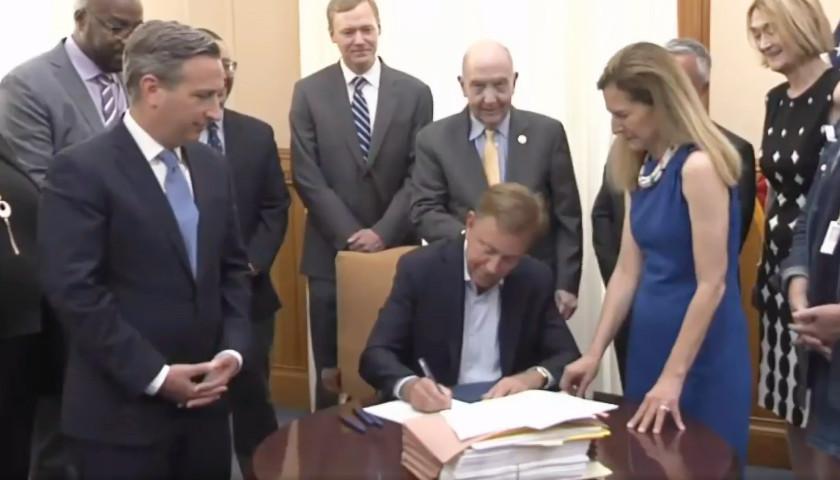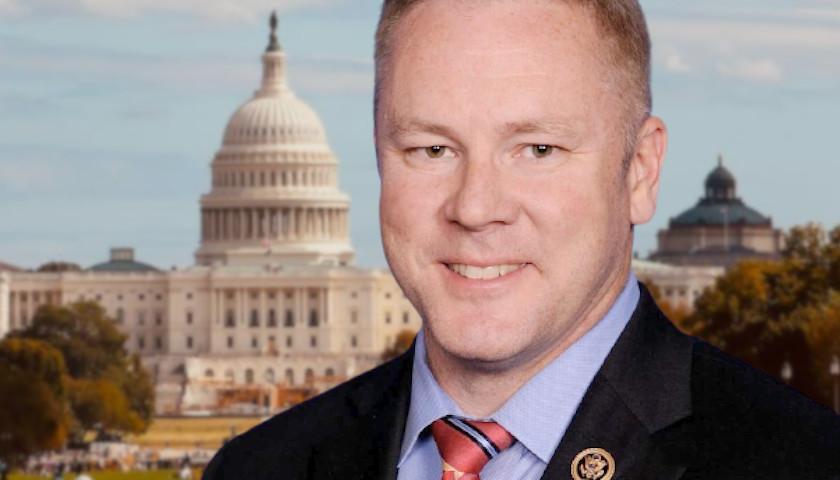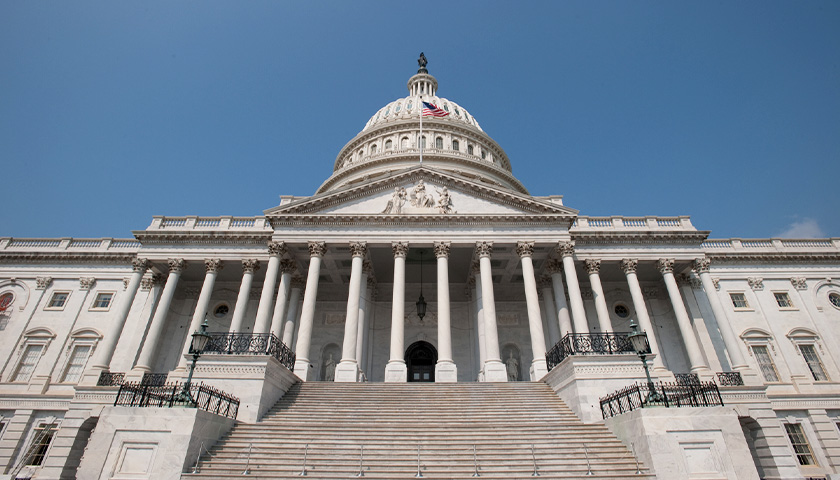by Christian Wade
Connecticut Gov. Ned Lamont is touting a $51 billion, two-year state budget that includes the “largest” income tax cut in state history.
The spending plan, which he signed on Monday after winning approval from the Democratic-controlled General Assembly, increases state spending by about 7.5% over the next two fiscal years but keeps the expenditures under the state’s cap on spending.
But the plan also includes the state’s first personal income tax rate reduction since 1996, which Lamont touted as a sign that Connecticut is shaking off its high tax reputation and emerging from the COVID-19 pandemic in a strong fiscal position.
“We targeted these tax cuts and credits specifically for middle-class and working-class taxpayers because we want to enact the broadest-based relief possible to those who need it,” Lamont, a Democrat, said in a statement. “I am glad to sign a bill providing tax relief to our residents.”
Overall, an estimated 1.1 million of the state’s 1.7 million tax filers would get some relief under the plan, which is projected to save taxpayers $440 million annually, officials said.
Under the new rates, the 3% tax rate on the first $10,000 of income and the first $20,000 by couples will decrease to 2%. The 5% tax rate on the next $40,000 earned by individuals and the next $80,000 by couples will decrease to 4.5% under the changes. The benefits will be capped at individual filers who earn $150,000 and couples who earn $300,000.
The budget includes other tax relief, including a provision increasing the state’s Earned Income Tax Credit from 30.5% to 40%, allowing low-income workers to receive another $44.6 million in state tax credits.
It also includes the expansion of exemptions for some pension and annuity earnings for seniors by eliminating the retirement income tax “cliff” by adding a phase-out for allowable pension and annuity and IRA distribution deductions against the personal income tax.
Lamont won a second term in the Nov. 8 elections after defeating Republican businessman Bob Stefanowski in a campaign that focused partly on the Northeast state’s high cost of living.
Democrats, who control the state Assembly and Senate, unveiled their budget plan in April, calling for boosting spending in the next fiscal year by an estimated $400 million over Lamont’s preliminary budget, filed in February.
Ahead of the debate on the budget, Republican lawmakers had proposed their own spending and tax relief proposal that includes more than $1.1 billion in tax relief and repeal of a new highway tax on commercial truckers.
Lamont noted the budget passed with bipartisan support in comparison to Washington, D.C. and other states where partisan gridlock has derailed spending plans.
“I am fully aware that this makes Connecticut an outlier among the states in this current political climate and I don’t take that for granted,” he said. “By working together collaboratively, we are making Connecticut stronger and adopting policies that benefit the people who live here. I thank the legislative leaders on both sides of the aisle for their work on this biennial budget.”
– – –
Christian Wade is a contributor to The Center Square.





